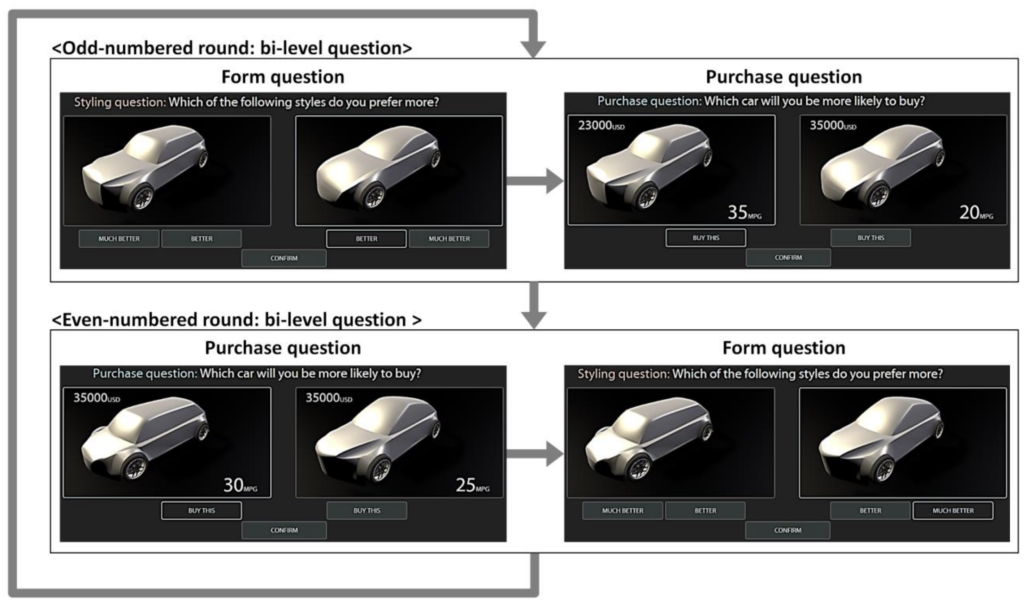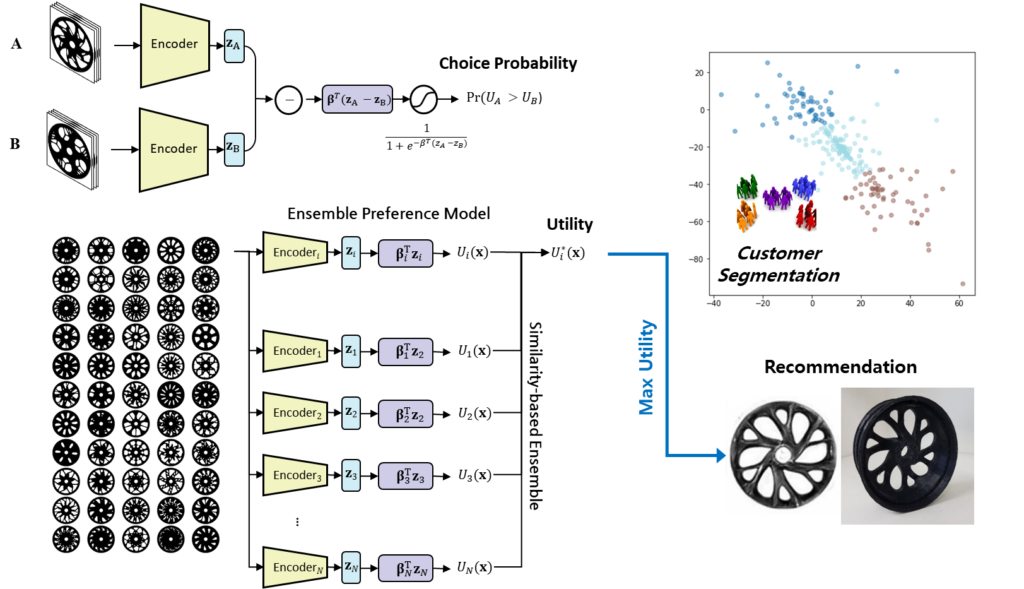Research
Research Outputs
AI-based mobility/product design (Generative design)
What if artificial intelligence can design engineering systems on its own?
Smart Design Lab (SDL) wants to open a new paradigm in the manufacturing industry with AI-based engineering design. It combines physics-based dynamics with data-based deep learning technologies, and builds a virtual product development platform through digital transformation. This innovatively reduces the time and cost of product development and enables design to succeed in the marketplace.
AI-based generative design, which combines artificial intelligence and engineering design technologies (optimal design, CAD/CAM/CAE, HCI, etc.), allows artificial intelligence to achieve designs that satisfy engineering performance, aesthetics, and economy on its own. Develop and integrate the elemental technologies required for the four steps below.
- ① Design Generation: Technology that mass-creates aesthetic and engineering valid designs based on historical design data
- ② Design Evaluation: Technology to predict the various engineering performance, manufactureability, and originality of the generated design in real time and explain the cause
- ③ Design Optimization: Technology to derive optimal design proposals in real time to meet target performance and constraints
- ④ Design Recommendation: Technology that predicts customer preferences for design proposals in real time and recommends marketable designs
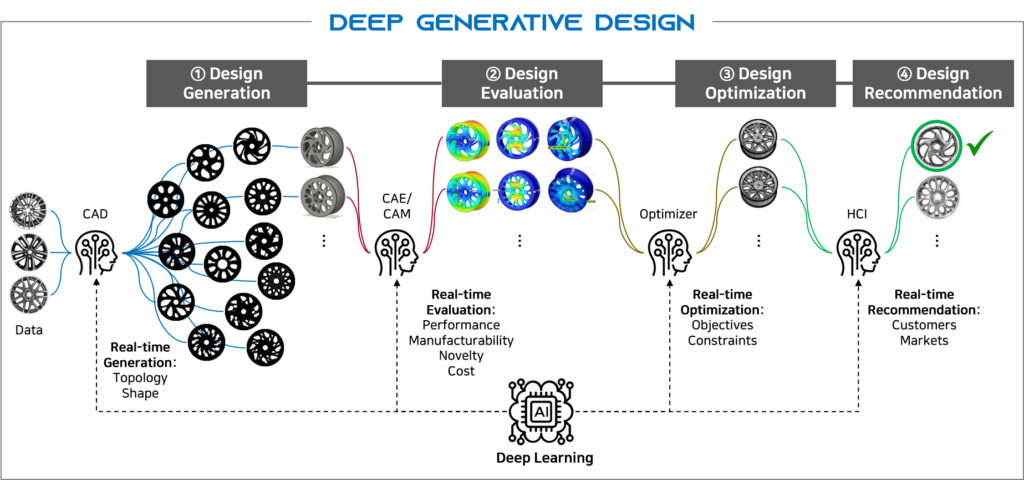
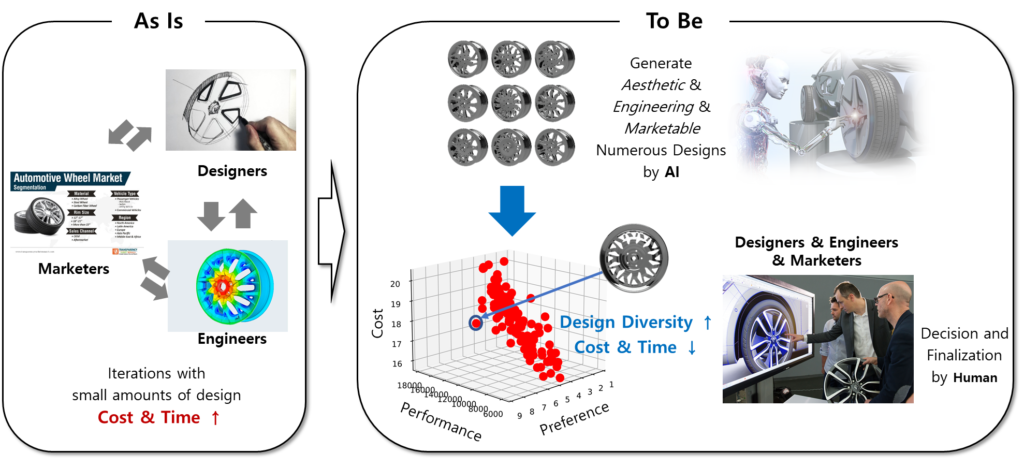
① Design Generation AI

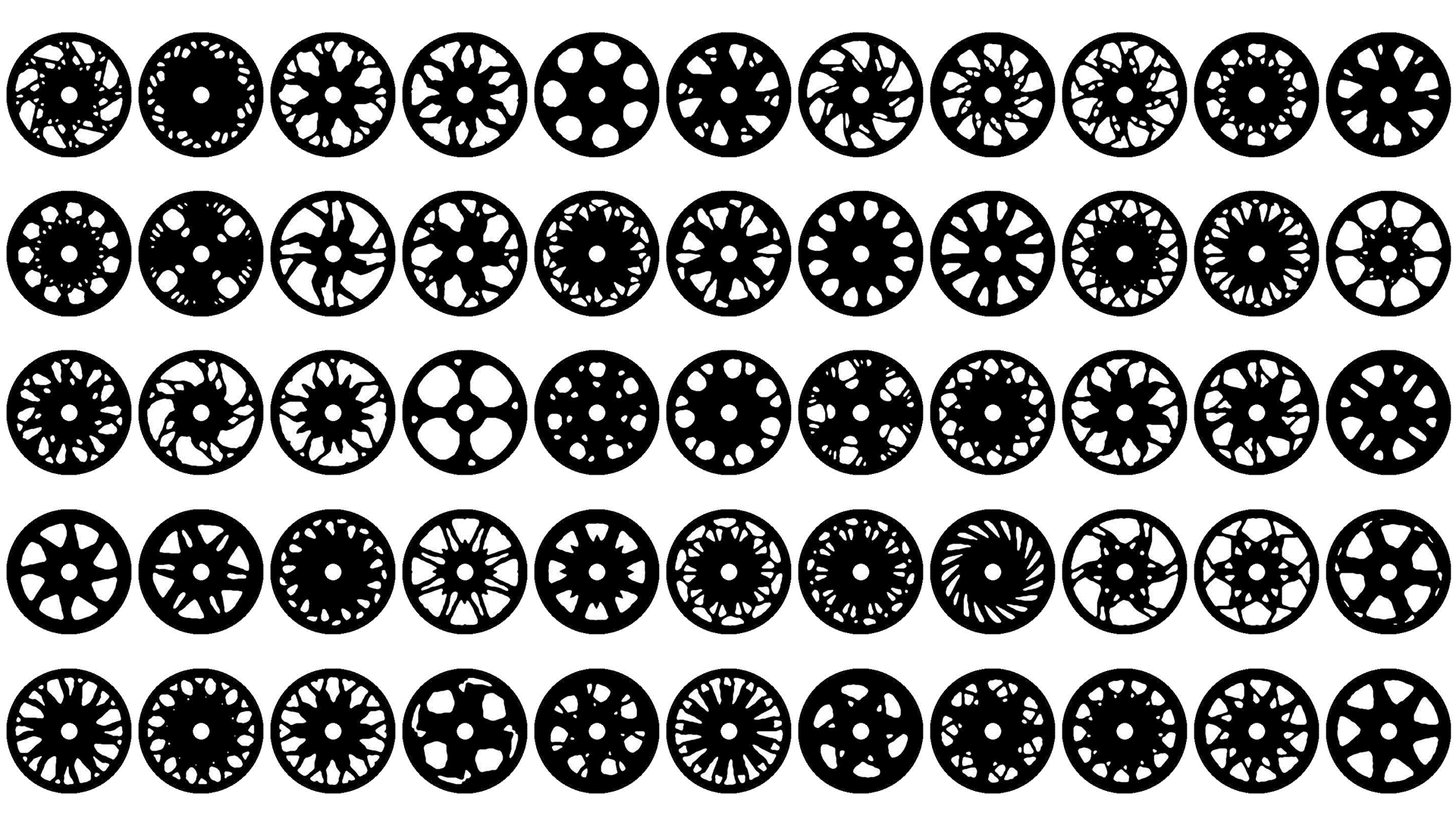
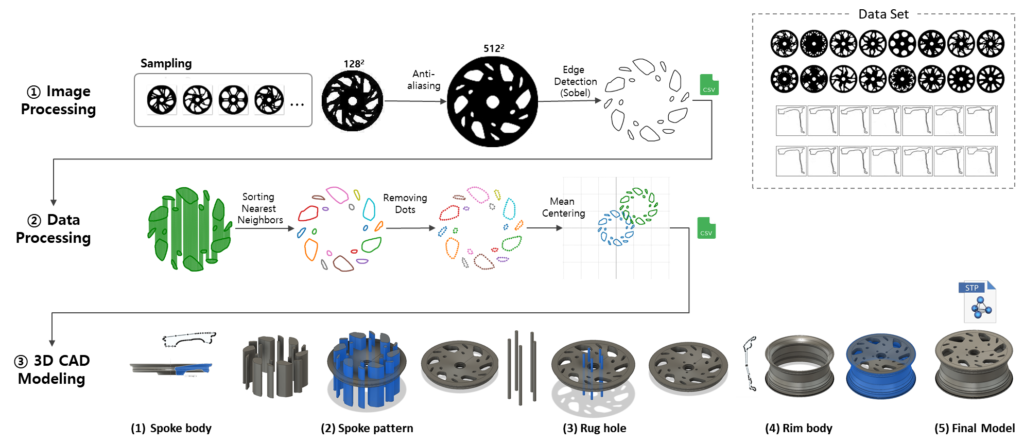
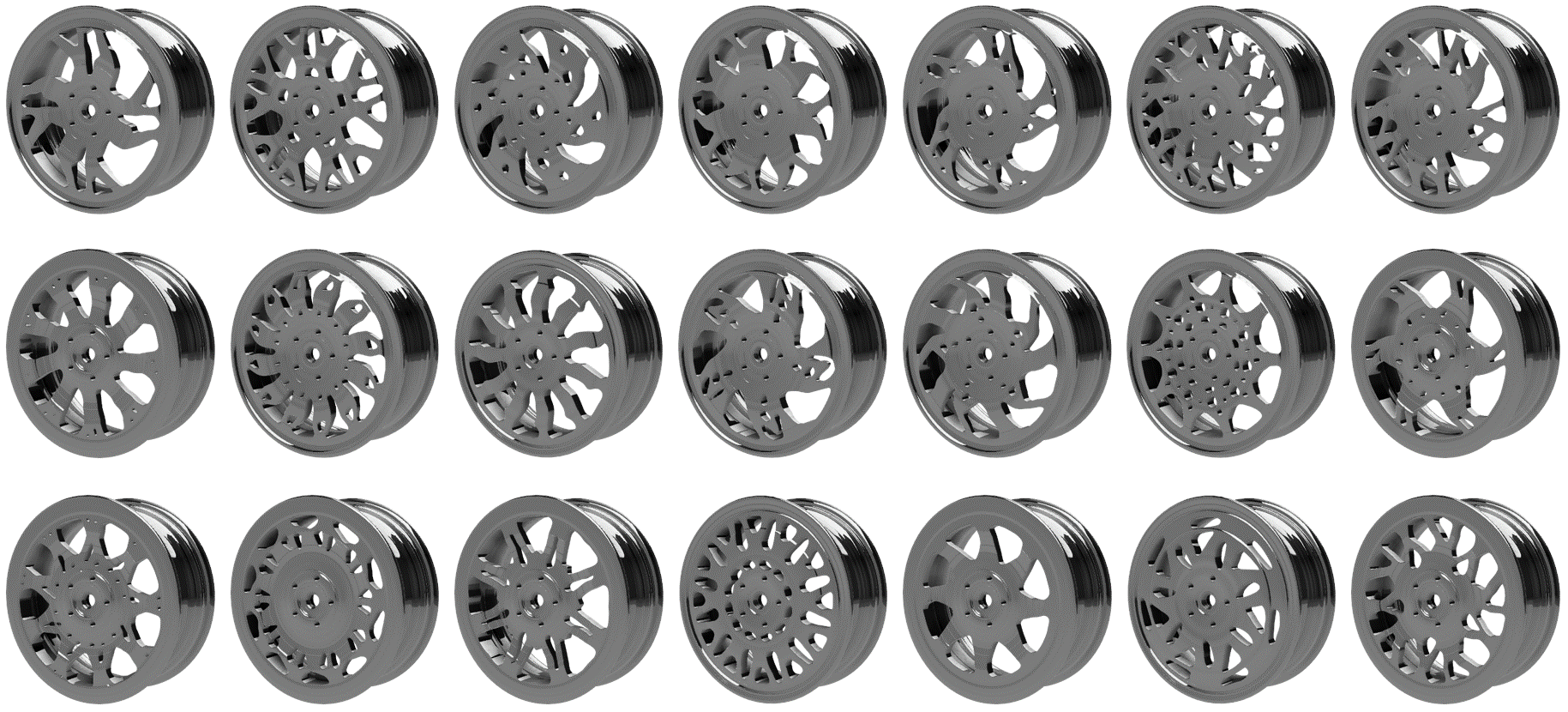
② Design Evaluation AI
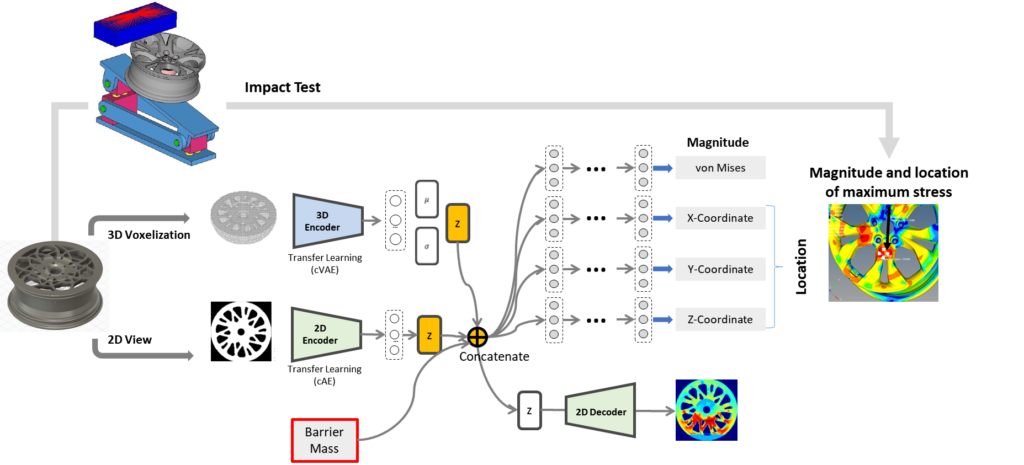
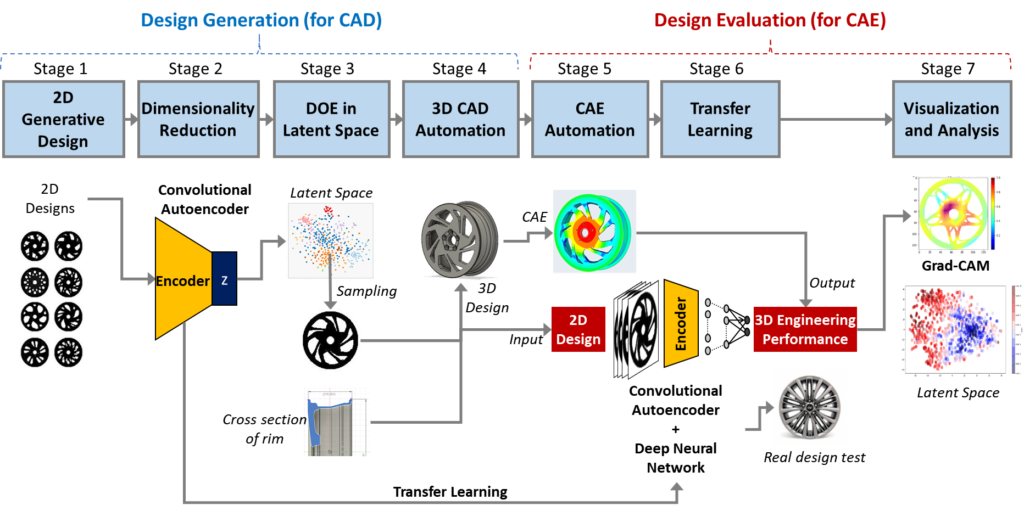
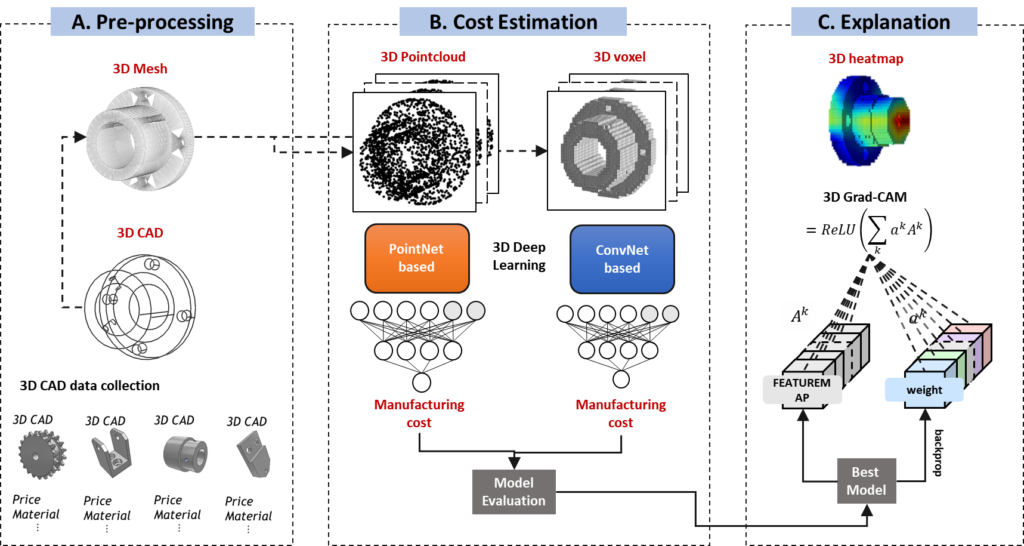
③ Design Optimization AI

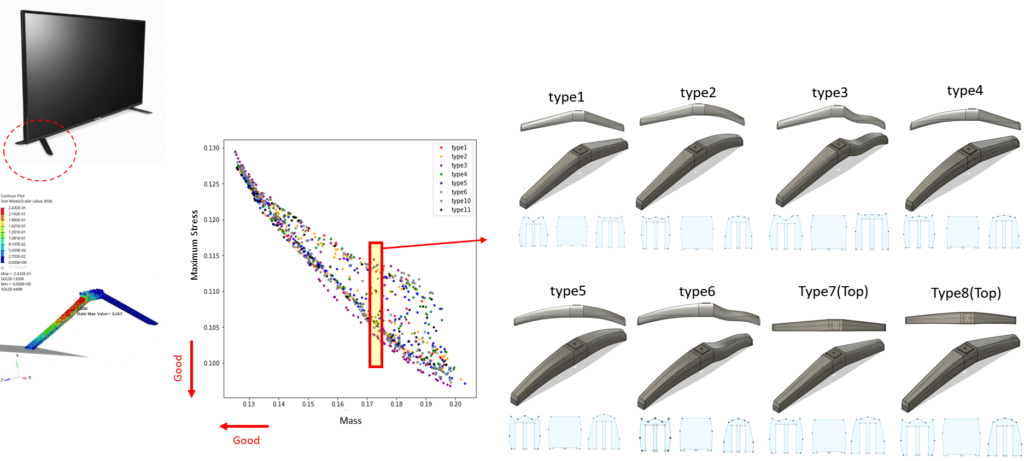
Deep Learning Based Design Parameters Inverse Design
④ Design Recommendation AI
